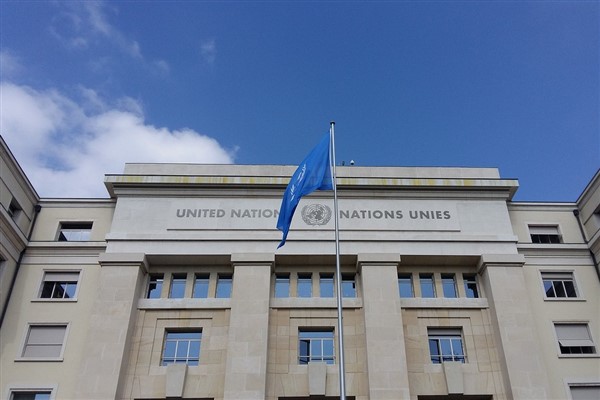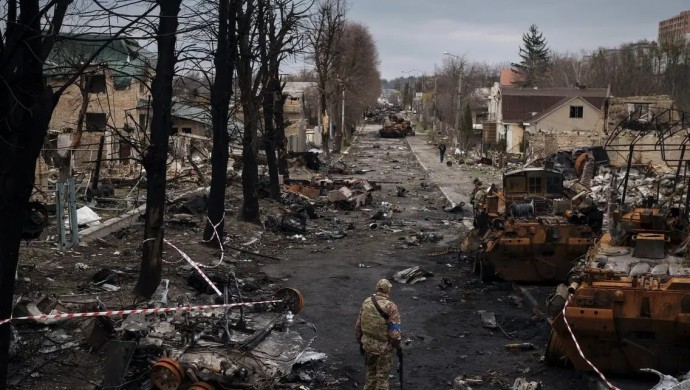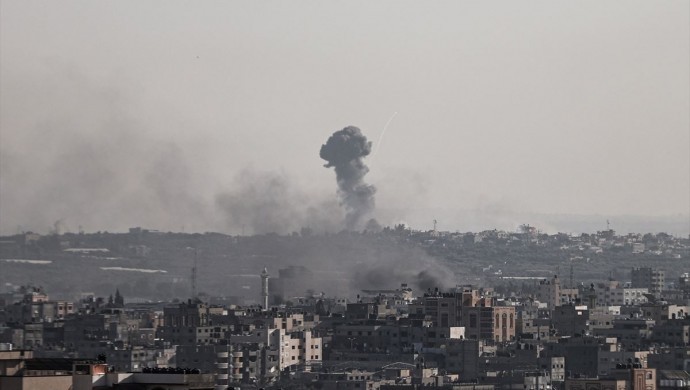The multi-dimensional effects of the Russian crisis… The fact that Russia launched an attack on Ukraine and then the Western states narrowed the space with the sanctions covering Russia's financial system, economy, government officials and Putin himself, also caused some problems for Turkey, which has intense commercial relations with Russia. It is necessary to read this in terms of bilateral financial and economic relations, global energy prices, tourism and politics.
Inflationary effects, energy, raw materials, food… The continuation of the US and EU's sanctions against Russia, and their large economic and financial repercussions, a crisis has the potential to affect countries with deep commercial relations. Russia, which has a 19% share in the world's natural gas reserves, has a share of nearly half (41%) in the natural gas imported by Europe. In addition, Russia holds 13% of world oil production and ranks third in wheat production and world aluminum production. Of course, the attack created dynamism in all commodity prices and increased global inflationary concerns and concerns about supply. Here, at this point, the situations arising from energy supply and prices directly affect Turkey's main indicators such as current account deficit and inflation.
German Chancellor Olaf Scholz said on February 27 that Germany has decided to step up work to build two LNG terminals in the country to reduce Russia's dependence on gas imports. The US, on the other hand, is considering releasing an oil supply of 60 million barrels from its strategic reserves. Oil is currently under control due to demand problems caused by US shale oil, Iranian prospects and high prices. However, a large supply problem caused by the war and the dependence on Russian energy resources at this stage will hit the production and price balances.
Food prices, on the other hand, are on the rise due to the interruption of agricultural production due to the war. We will be following the increase in grain prices, especially wheat. In the 50% inflation band, food is a very decisive item. The factor that can be read positively is that due to the cessation of exports, the supply of vegetables and fruits was directed to the domestic market and prices decreased.
Foreign trade… Russia is Turkey's third largest trading partner. Russia, which has a share of 8.5% in Turkey's total imports, generally exports energy and food products to Turkey. Petroleum and refined energy products constitute half of this trade, and wheat and grain products constitute approximately 10% of this trade. Having a trade deficit of 10.3 billion dollars in January, Turkey's energy deficit amounted to 8.1 billion dollars. In other words, nearly 80% of this deficit came from the increase in the energy bill. The increase in energy prices will negatively affect the current account balance in terms of enlarging the foreign trade deficit.
On the export side, there will be primary and secondary effects. The primary effects are related to our direct trade with Russia. The items that Turkey exports the most to Russia are fresh fruit and vegetables and automobile parts and accessories. In addition to a negative break in supply chains, disruption of payment systems under Russian sanctions may cause problems in the collection of export revenues and increase costs. In this context, Turkish exporters can make new market diversification with strategic planning.
For secondary effects, it is necessary to consider the situation in our other export markets. The spillover effect of a crisis causing an economic slowdown in Europe, especially through the supply chain, may cause a slowdown in domestic exports and thus in the production network.
SWIFT, the financial system… The SWIFT ban imposed on Russian financial institutions is a measure that will bring difficulties to trade revenues and related fund transfers. Along with the sanctions of the Western world, the obstacles to Russia's dollar, Euro, sterling, yen-based trade, and the paralysis of the Central Bank of Russia's reserve resource of approximately 400 billion dollars in developed countries, both financial system difficulties, increase in transfer costs and payment delays. It will cause strain on relationships. With these moves, it is aimed to prevent Russia from doing trade to a large extent.
Direct and indirect financial market effects… The negative real return position of Turkish assets in the concept of decreasing risk appetite may cause it to show more fragility. In this environment, where global investors will be less in demand for risky assets, the potential to increase borrowing costs in developing countries, and the competitive returns, exchange rates may react in line with the principle of applying low interest rates.
In order to maintain the stability in the exchange rate, the transitions to the FX-linked deposit product, which the Treasury guarantees the exchange rate return, accelerated in January and February. The increase in the exchange rate burden on the treasury will force public finance. The fact that the exchange rate yield exceeds the periodic bank interest rates will bring difficulties in terms of the sustainability of the FX-linked deposit product, increase the borrowing requirement and adversely affect inflation.
Tourism… The closure of the airspace due to the geopolitical situation, the restriction of travel, and the deteriorating economic situation due to the financial fluctuation of the ruble will adversely affect the tourism originating from Russia. Zeroing out tourism revenues from Russia and Ukraine will have an annual impact of approximately $4 billion on the current account balance.
Global politics, Montreux Straits Convention… The Ministry of Foreign Affairs described the situation in Ukraine as a war and announced that the provisions of the Montreux Straits Convention would be implemented. In this case, if we look at what Montreux said;
The Montreux Straits Convention, which has been in effect since 1936, gives full freedom to the passage of merchant ships, while it also imposes certain restrictions on the passage of military ships and the duration of their stay in the Black Sea. According to the convention, ships belonging to countries other than the Black Sea cannot stay in the Black Sea for more than 21 days for any reason. Whether they are riparians or not, the total weight of military ships that will pass through the straits in one day cannot exceed 15 thousand tons. Black Sea riparian countries cannot simultaneously have warships in the Black Sea with a total tonnage exceeding 45 thousand tons. According to the contract, aircraft carriers cannot pass through the straits.
According to the contract, all countries are obliged to notify Turkey of warships that will pass through the Turkish Straits. This notification is determined as one week before the transition for the Black Sea riparian countries and 15 days before the transition for the non-riparian countries. In order to protect 45 thousand tonnage, Turkey recalculates according to the notifications made by the countries and allows military ships to pass in accordance with this calculation. The Montreux Convention on the Straits contains different regulations, especially for the passage of military vessels, depending on the state of peace and war. The Convention gives Turkey the right to act as it wishes when warships of other countries pass through the straits or if it feels threatened by war, or in a war it is a party to.
In a war situation where Turkey is not a party, warships have freedom of passage according to peacetime restrictions. However, in case of war, the passage of military ships of the warring states through the straits is prohibited. The exception to this transit ban is "aid to an attacked state pursuant to a mutual aid agreement binding Turkey".
Conclusion? There is a risk that the current crisis will affect inflation in branches such as energy supply, food products, exchange rate, supply chain, FX-linked deposit product. The increase in the energy bill, the suppression in tourism revenues and a potential slowdown in exports will have a negative impact on the current account balance, making it difficult to implement the policy of current account surplus. This factor, which may have a significant external, uncontrollable effect on the new economy perspective adopted by Turkey, may cause the balances previously foreseen in the main indicators to re-establish.
Kaynak Tera Yatırım-Enver Erkan
Hibya Haber Ajansı
























